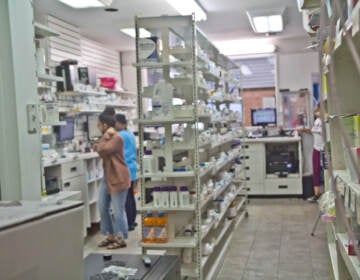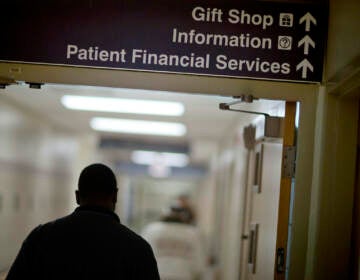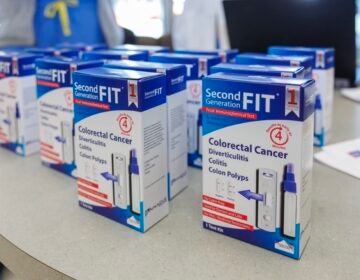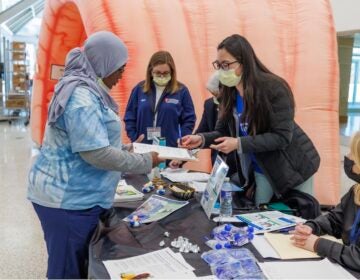Temple doctors expand access to stool-based colon cancer screening to reduce racial disparities in Philly
Temple Health physicians are expanding a program to increase access to stool-based screening kits, an alternative to colonoscopies.
Listen 1:09
Temple Health physicians and providers hand out FIT take home kits for stool-based colorectal cancer screenings. (Courtesy of Temple Health)
From Philly and the Pa. suburbs to South Jersey and Delaware, what would you like WHYY News to cover? Let us know!
Colonoscopy remains the gold standard of screening for colorectal cancer, which is highly treatable and curable when caught early. An estimated 106,970 people will be diagnosed this year.
However, only some people who become eligible for screening at age 45 get the procedure, which is usually done in an outpatient surgical center and involves a bowel prep drink taken the day before, sedation during the exam, and some recovery time.
Screening rates are lower among Black and Hispanic people, according to national data. Black people face a higher risk of both getting colon cancer and dying from it.
In response to seeing racial disparities in screening rates and the barriers people face in completing colonoscopies, physicians at Temple Health in Philadelphia launched a project to distribute free stool-based colorectal cancer tests across a large swath of the health care system.
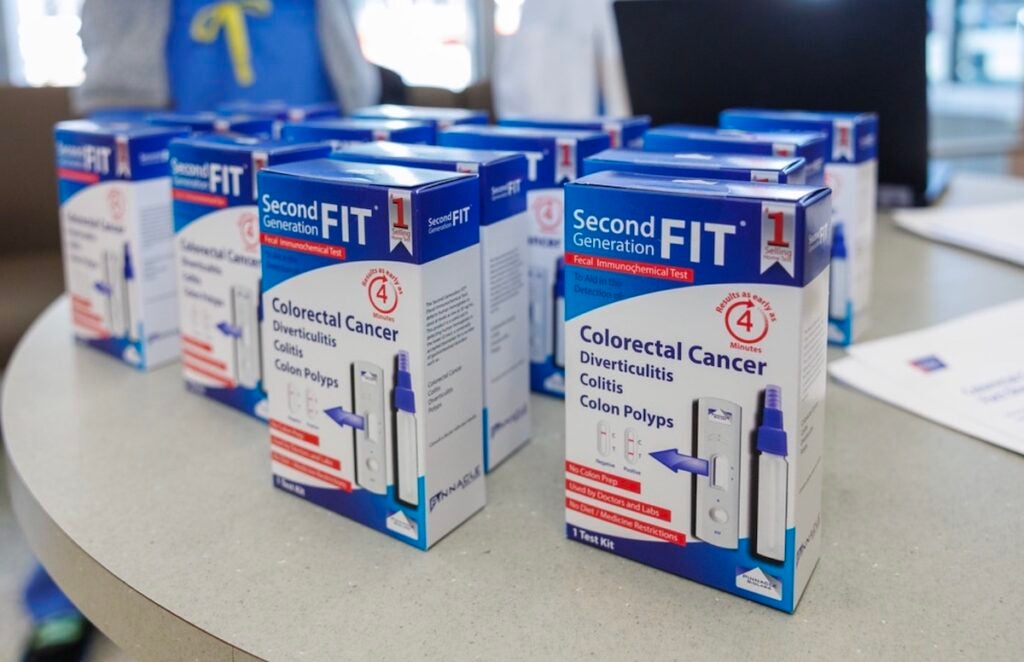
The team is now working to grow the program in order to increase screening rates and participation in preventive care services in the community.
“The best screening test is the one that gets completed,” said Dr. Jessica Briscoe, gastroenterologist and assistant professor of medicine at Temple Health. “That’s the point we’re trying to make here, is creating as many touch points as possible to engage as many patients as possible.”
Stool-based screenings involve easy-to-use test kits that people can take home to collect a tiny stool sample, which is screened for any signs of cancer. They are effective in detecting cancer at early stages.
The tests are alternative screening options for people at low risk of colon cancer and who do not have a personal or family history of the disease.
“It really eliminates all the steps of having to come in, taking a day off of work, drinking the prep that can be cumbersome,” said Dr. Rishabh Khatri, chief resident in the department of internal medicine at Temple University Hospital.
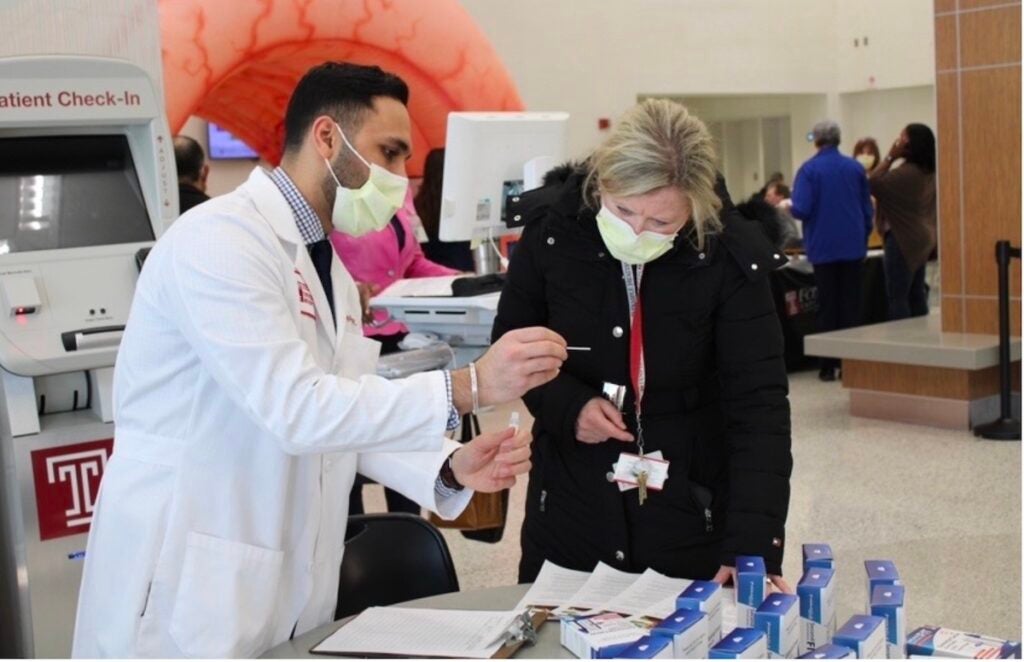
The Temple project is a collaboration with Fox Chase Cancer Center, Temple University Hospital, and the Lewis Katz School of Medicine at Temple University.
The program has distributed between 500 to 600 fecal immunochemical tests (FIT) since launching a year and a half ago during the COVID-19 public health emergency, when many routine cancer screening tests were postponed or delayed.
Dr. Claire Raab, president and CEO of Temple Faculty Physicians, said health providers had to start thinking out of the box on ways to increase access to preventative screenings for colorectal cancer by meeting people where they are.
Screening recommendations and guidance often come up during patient visits with their primary care providers, but city data shows that nearly one in five Philadelphians don’t have one.
“It’s this idea that you don’t have to fit in the lines,” Raab said. “You don’t have to have an established primary care provider to have access to this, and I think that’s the single greatest thing that will lower the access bar for the population.
“There is no real rule that says we can’t hand out FIT tests in the lobby, and we can’t hand out FIT tests in our subspecialty clinics, and there’s really no reason why we can’t hand it out to our inpatients.”
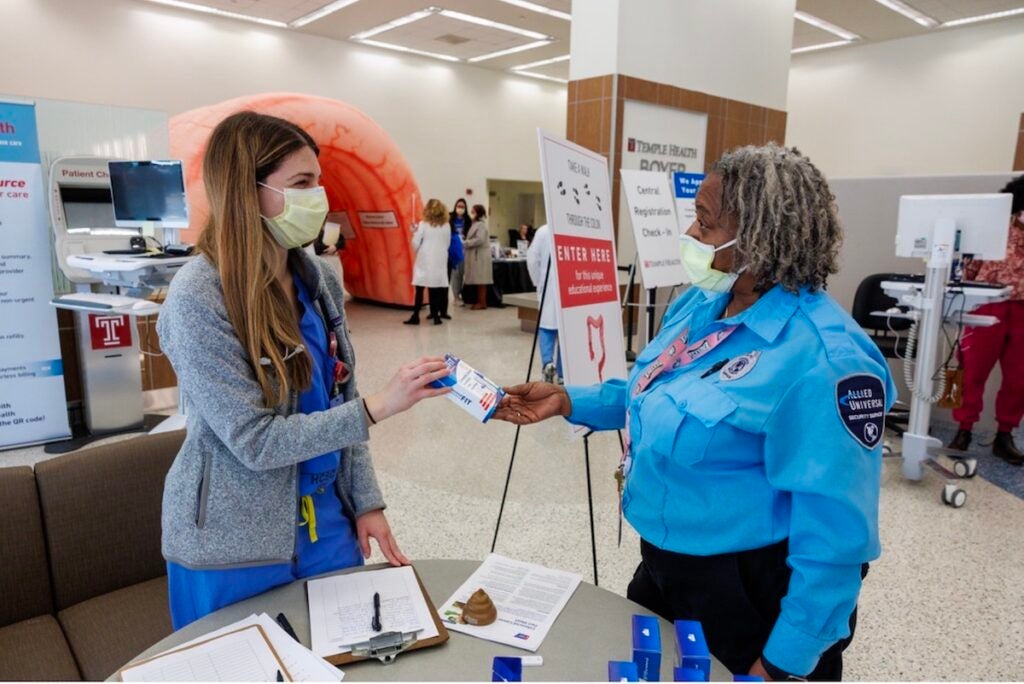
The average cost for a FIT test is about $24 commercially after insurance and discounts, making them “something that every health system and every health care delivery system can really take on,” Raab said. “It’s not cost prohibitive.”

Get daily updates from WHYY News!
WHYY is your source for fact-based, in-depth journalism and information. As a nonprofit organization, we rely on financial support from readers like you. Please give today.


